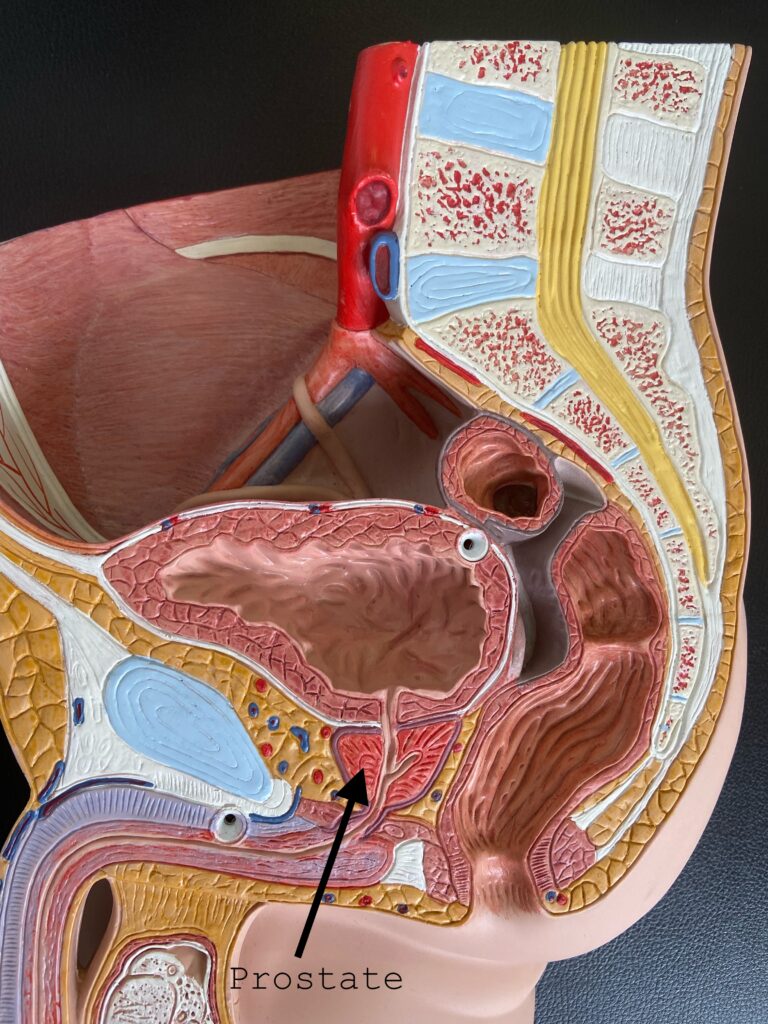Part 2 – What if it’s NOT your prostate?
Last week, in Part 1, we reviewed some common symptoms that can indicate a problem with the prostate. However, did you know that these EXACT symptoms may NOT be your prostate?
Many of our patients have a common story. Of course no two people are the same. You may have one or all of these experiences, perhaps in a different order. Maybe you’re just starting to feel and issue and unsure what to do? Read on…
What we commonly hear:
- You’ve been experiencing what appears to be standard prostate symptoms such as: pain, difficulty starting the flow of urine, weak stream, erectile dysfunction.
- You’ve tried antibiotics. Some providers test first for an infection, some don’t. If they “kind of” helped, then you probably tried them again. Maybe getting some relief, but never fully resolved, and symptoms came back.
- You tell the doctor and they want to help you, so perhaps you get further imaging and diagnostic testing. These can include ultrasound, cystoscope, MRI, and others. Most of these show nothing significant and your provider says “looks great, don’t know what to tell you”. (Hopefully they say “looks great. You need Physical Therapy”.)
- At some point, you may have been given other medications such as Flomax, or others for erectile dysfunction. Again, maybe help a bit.
We have some people who never had these experiences, and others who have many times, with multiple providers, test and meds. Some get to Physical Therapy right away. Those are happier people.
So what happened?
Nothing is wrong with your provider checking and ordering tests for an issue of the prostate when your symptoms clearly indicate that could be the issue. It is critical to your health to rule out these conditions. The problem is…
Then what IS happening if it’s not the prostate?
When these initial treatments don’t give relief, and tests come up negative, your issues are most likely related to the pelvic floor.
How? The prostate sits between the pelvic floor and bladder. When the pelvic floor contracts, the prostate is lifted up into the bladder (that’s how you can stop the flow of urine). However, chronic or stress-related tension in the pelvic floor causes chronic compression of the prostate into the bladder.
An ENLARGED prostate acts a lot like a COMPRESSED prostate.

See how you can have constant urinary symptoms and pain? If you never let the floor relax, you never let off the bladder. Eventually, the body starts to dislike that. The problem is, most of us hold tension in our pelvic floor without even knowing it, especially when we are stressed. The reason why antibiotics “kind of work” is because most have an analgesic in them as well. This alone can give you some temporary relief, and explains why discomfort comes back when the course of the medication is complete.
For some reason, men with pelvic and bladder discomfort are much less likely than women to get diagnosed with anything other than prostatitis (and not just because of the anatomy). It seems that if it isn’t the prostate, we don’t know what to do, we keep treating it, even when the treatments for it don’t work. Why? I would love to know that answer too…
Treatment
Physical Therapy has been a well-researched and highly effective treatment option. We can help when there is truly a prostate issue, but skilled pelvic Physical Therapy becomes critical when it’s not. We can help identify what may be causing dysfunction of the pelvic floor, what other areas are related, and any other contributions as they relate to posture, habits, lifestyle, work, or recreational activities. Make sure you find a specialist
Treatment can often be very simple. If it’s not, you still have a partner to work through every step. Many of our patients find huge relief, not just physically, but the burden of not having answers to something that affects quality of life to such an extent.
Some people have both prostate and related issues, and that’s ok too. The point is, you may still be able to get significant relief, even fully resolve your complaints if you include this very important part of your care. We can take the time to answer any questions and leave you with a long-term plan. Let us know how we can help. Until then, check out a review from a current patient.
“This is an outstanding physical therapy clinic specializing in pelvic pain and pelvic health. I highly recommend Valerie, Katelyn and Alyssa. All three are caring, skilled and effective. Excellent treatment for men with pelvic pain.”
